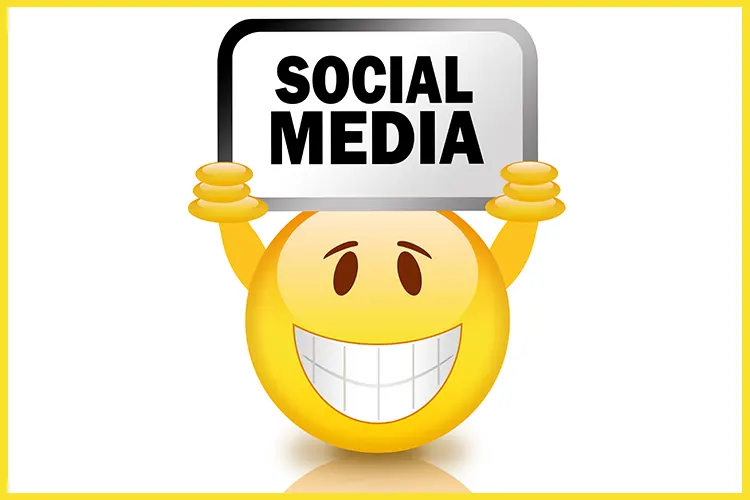Social Media Marketing
Leverage Social Media to Generate More Sales Leads.If implemented correctly, marketing with social media can bring tremendous success to your small business. If implemented incorrectly, it can spell disaster.
You rarely read about the achievements, but almost every day, you hear about the social media failures in the news.
The first thing you should know is that you need to understand your customer base. The first important question you should consider is, does your business sell primarily to consumers (B2C), or does it sell mainly to other companies (B2B)?
Utilizing social media effectively for each of these two audiences requires an entirely different strategy.

As an example, let's say you’re a printer. Unless you specialize in wedding invitations, the odds are pretty good that your business primarily sells to other businesses (B2B), and does not sell mainly from business to consumer (B2C). Based on this scenario, Facebook advertising would likely not show any significant return on investment for you. Why? Because it’s membership base is consumers, not businesses, and it is, therefore, the wrong audience for your business.
Some people might argue that lots of people on Facebook work at companies that utilize printers every day, and that makes it the right audience for your ads. These people are overlooking one critical consideration, the audience’s intent. I don’t believe that many (if any) people go onto Facebook looking (searching) for a printer to print their business items.
The viewer's intention is a crucial component of successful advertising.
If the viewer is actively seeking someone who sells a product or service precisely like you, then you are aiding them in their selection process and seen as an asset. If the viewer is not actively seeking someone like you, then you are seen as an interruption to whatever they were doing, and this is not a desirable position to be in as an advertiser, as it is negatively (even harshly) viewed by many people.
“Most Social Media Platforms Don’t Perform Well For Companies With B2B Audiences.”
In the printer example above, some people would say that LinkedIn is the best place to advertise your printing services. LinkedIn is a better alternative than Facebook in this case because the audience on LinkedIn is typically business people who are associating themselves with other business people who are looking to grow/expand their business relationships. People on LinkedIn are expecting to meet other businesses that might be able to help them; that part is accurate.
However, the one critical component these people are overlooking is that this audience is likely NOT actively looking for a printer at this exact moment in time. Remember, the essential element in successful advertising is the viewer's intention.
The biggest mistake people make in using social media for business.
If you are trying to sell a product or a service, don’t follow the lead of entities that make money from getting page views. These Social Media Sweethearts get paid when you click on their page. It doesn’t matter if you like what you see or not, just getting you to their page earns revenue for them.
When trying to sell a product or service, your revenue reward isn’t that simple. Your sales process is likely much more complicated. Therefore, the strategy you use requires an entirely different approach from that of all examples you hear about on Twitter, Instagram, YouTube, etc.
Media hype makes you believe that anyone can be successful using Social Media. Keep in mind that almost all of these people so heavily promoting Social Media get paid by page views, and rarely have to sell a product or service to be successful. Their promotion of social media is self-serving and earns them revenue in the process.
The second biggest mistake people make in using social media for business.
You should also realize that most (if not all) of the social media platforms have their own analytics programs that track your success of advertising on their platform. Consider that they design their metrics to make themselves look great. Although you might achieve superstar performance by their parameters, these metrics may not be in line with what you consider to be a worthwhile investment.
Some platforms even appear to use what are standardized metrics; however, they apply an entirely different meaning to the term, attempting to make themselves look better.
Who cares how many “likes” I get on one of my advertisements if my phone never rings, and no one ever comes through my door to buy anything? I can’t pay my payroll with likes, and my landlord won’t accept likes to pay the rent. I don't care what my “reach” is when I reach into my cash register and find it's empty.
In this case, I DON’T LIKE IT, and that’s all that matters to me.
Small businesses can't afford to invest in marketing activities that don't produce results!
Curious about how we can help you with your Social Media marketing, why not give us a call to discuss your situation, and how we might be able to help?
Let's Talk
